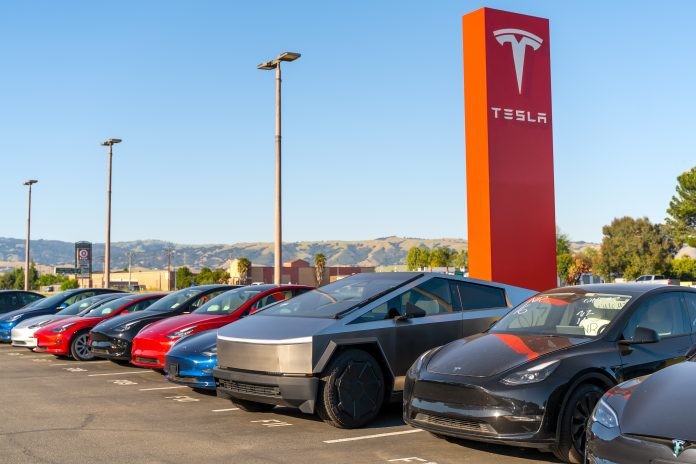According to industry data released on Thursday, registrations of Tesla cars in California fell 24% from April to June, marking the third consecutive quarter of declining sales in the company’s key market. This significant drop highlights mounting challenges for the electric vehicle (EV) maker amid high interest rates and increasing competition from less-expensive hybrid cars.
High interest rates and stiff competition have softened demand for electric vehicles as consumers opt for more affordable hybrid options. Additionally, potential Tesla customers in the United States have been shying away from purchasing its electric cars, partly due to CEO Elon Musk’s polarizing persona. Musk’s outspoken comments and embrace of Republicans have sparked concerns about Tesla’s brand, especially in liberal states like California, which accounts for 10% of the company’s global deliveries.
According to a report by the California New Car Dealers Association, Tesla’s California registrations fell to 52,211 vehicles in the second quarter. In contrast, California’s battery-electric vehicle market slipped by only 1.3% during the same period, while sales of hybrid cars surged by 22%. The report stated, “Tesla’s allure seems to be wearing off, signaling potential trouble for the direct-to-consumer manufacturer.”
From January to June, Tesla saw its registrations in California slump by 17%, even as rivals such as Hyundai, Kia, BMW, Mercedes-Benz, Ford, and Rivian increased their sales by double-digit percentage points. Despite the decline, Tesla’s Model Y crossover remains the best-selling model in the state, although its market share in the first half of the year fell to 53.4% from 64.6% in the previous year.
In 2021, Tesla moved its headquarters from California to Texas, and Musk recently announced that his other companies, such as SpaceX and X, will also relocate due to his disagreement with Governor Gavin Newsom’s approval of a bill on transgender kids.
Tesla, set to report quarterly results on Tuesday, delivered more vehicles to customers in the second quarter than analysts had expected. However, deliveries were lower than a year ago. This ongoing trend of declining sales in its key market could pose significant challenges for Tesla as it navigates a competitive and evolving automotive landscape.




